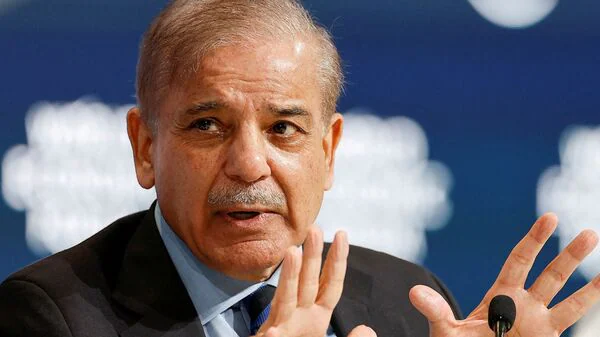The recent missile strikes by India on terror camps across Pakistan have sparked intense reactions from Pakistan’s leadership. Pakistan’s Prime Minister, Shehbaz Sharif, condemned the strikes, calling them an “act of war” and warned of a “befitting response” in the near future. The missile strikes were part of India’s Operation Sindoor, a retaliation for the deadly Pahalgam attack that killed 26 people, including foreign tourists.
India’s Operation Sindoor: A Strategic Response

Operation Sindoor saw India’s military forces, including the Army, Navy, and Air Force, targeting nine terror camps across Pakistan and Pakistan-occupied Jammu and Kashmir (PoJK). These camps, including known strongholds of terror outfits like Jaish-e-Mohammad and Lashkar-e-Taiba, were believed to be hubs from which attacks on Indian soil were being planned and coordinated.
Pakistan responded quickly to these missile strikes, with Sharif labeling them as an unprovoked act of aggression. He emphasized that Pakistan had every right to retaliate against India’s actions and vowed that the military would not allow India to succeed in its objectives. The strikes have heightened tensions between the two nuclear-armed neighbors, and experts have expressed concern over the possibility of further escalation. Read more on the escalating tensions.
The Allegations of Civilian Casualties
Pakistan’s government has claimed that the missile strikes resulted in civilian casualties, including women and children. While the Indian government maintains that the targets were strictly military-related, Pakistan insists that civilians were caught in the crossfire, further complicating the already delicate situation. For further updates on civilian impacts, refer to Al Jazeera’s report.

Pakistan’s Inter-Services Public Relations (ISPR) issued a statement warning India that the temporary satisfaction from these strikes would be replaced by long-term grief. “The Pakistani military is ready to respond at a time and place of its own choosing,” the ISPR said, signaling that Pakistan is preparing for a measured but significant response. Learn more about Pakistan’s planned response.
International Reactions and Implications
The international community is closely monitoring the unfolding situation, with several nations calling for restraint from both sides. The risk of nuclear escalation is high, given the military capabilities of both countries, and global leaders are urging both nations to seek diplomatic solutions to avoid further bloodshed. For the latest diplomatic responses, see UN Security Council’s official statement.
“India’s act of aggression has resulted in the martyrdom of civilians, including women and children. This act of aggression has also caused a grave threat to commercial air traffic,” the statement said.
Apart from Bhawalpur, the stronghold of terror outfit Jaish-e-Mohammad, terror camps in Kotli, Muridke, the headquarters of the terrorist group Lashkar-e-Taiba, and Muzaffarabad were also targeted.
The government statement said it targeted terrorist infrastructure in Pakistan and Pakistan-occupied Jammu and Kashmir from where terrorist attacks against India have been planned and directed.
Sources said the strikes were a joint operation by the Indian Army, Navy and Air Force.
Meanwhile, Pakistan’s Inter-Services Public Relations (ISPR) said in a statement that India’s “temporary pleasure will be replaced by enduring grief”.
“Pakistan will respond to it at a time and place of its own choosing,” the ISPR said, adding that the strikes by India “will not go unanswered”.
Pakistan’s Defence Minister, Khawaja Asif, has also warned of massive retaliation to the Indian attacks.
Conclusion: A Dangerous Crossroads
As tensions between India and Pakistan reach new heights, the world watches with bated breath. With both sides threatening military retaliation, the stakes are higher than ever. The situation remains fluid, and the international community hopes that cooler heads will prevail to prevent a broader conflict. For more on how the world is reacting, visit our dedicated conflict page.
What do you think will happen next? Will this conflict escalate into a full-scale war? Let us know your thoughts in the comments below.









